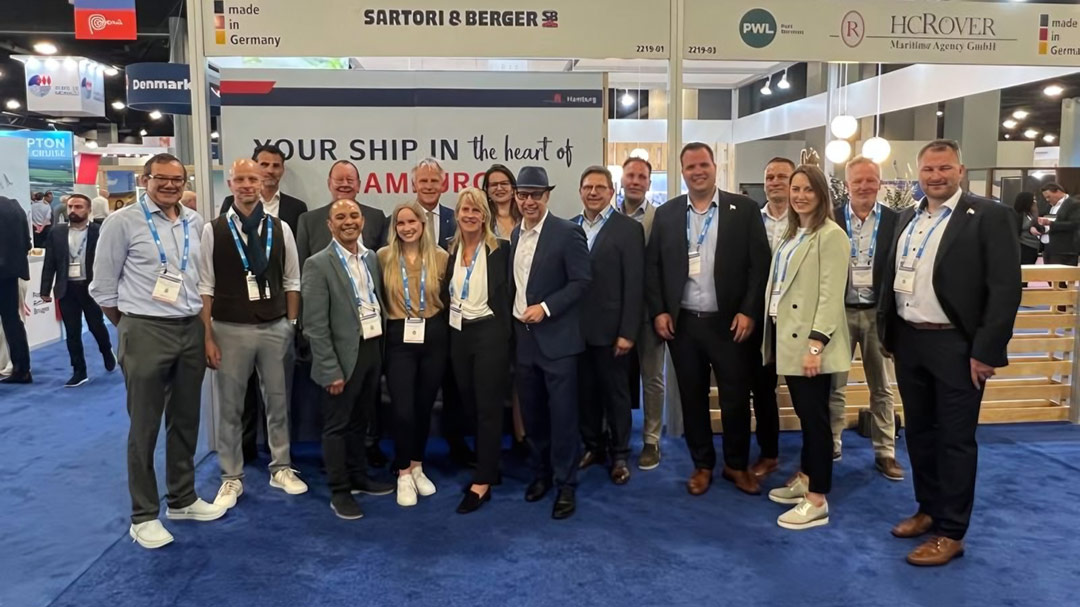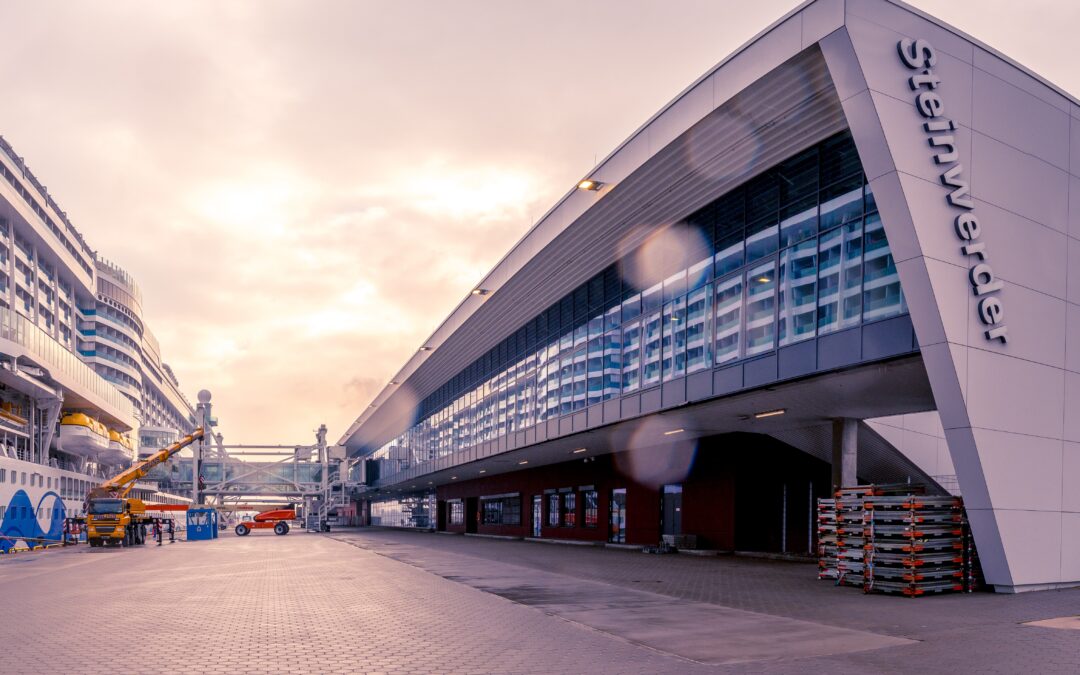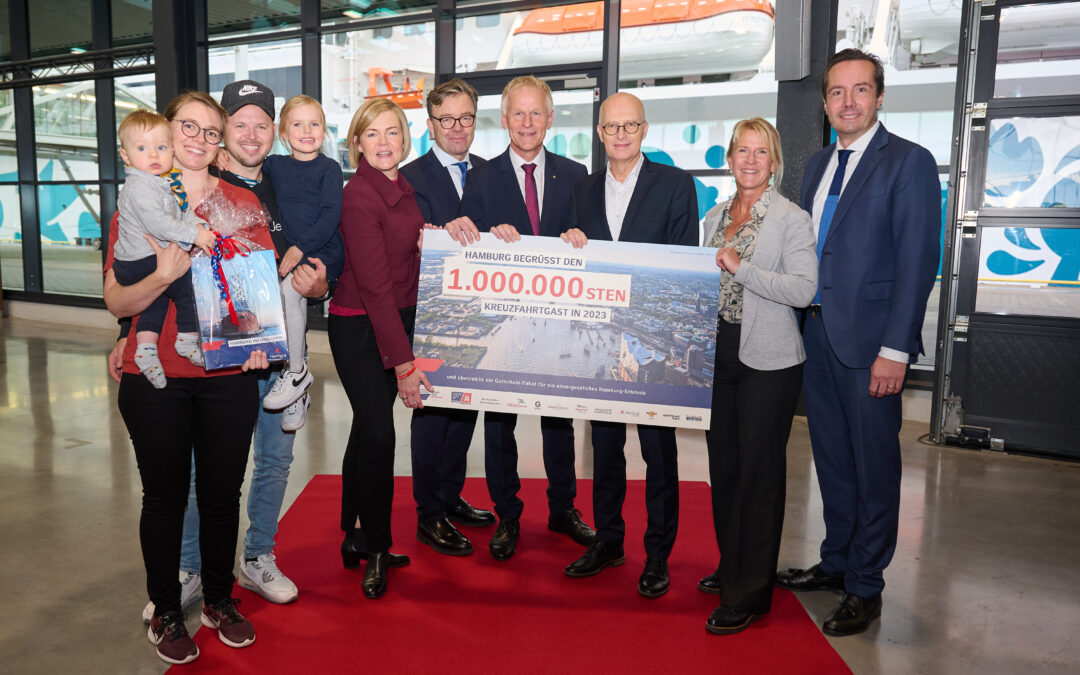The cruise shipping sector in the Baltic Sea has grown enormously in the last, nearly two, decades. While some 1450 ship calls (visits by a cruise ship at a port) were counted in 2000, cruise vessel calls will set a new record high at approx. 2,650 in 2018. During the same period the number of cruise guests visiting the Baltic Sea destinations increased from 1.1 mill. to approx. 5.4 mill. And cruise vessels are becoming larger and larger, while in the beginning of the millennium the average number of cruise guests per call in Baltic Sea ports has been less than 1,000, this number will double to more than 2,000 this year [Cruise Baltic 2018].
The cruise tourism boom for the Baltic Sea will continue with expected annually 5 % more passengers up to 2025. Increasing passenger figures are resulting in growing economic and employment effects for the port locations and their hinterland. For 2015 the Maritime Institute in Gdansk estimated the total annual turnover of cruise passengers and crew members in BSR cruise ports of more than € 400 mill. and an
employment effect of up to 11,500 jobs.
All cruise stakeholders, ports, shipping lines, tourism organizations, etc. are aiming not only to further strengthen the industries’ economic performance, but also to observe “Sustainability”. Here the social and ecological aspects, e. g. air and noise emissions, of cruise shipping gain crucial importance. While at the seaside shipping lines and international bodies, e.g. the International Maritime Organization (IMO) or the EU, are the main actors, onshore national port authorities and terminal operators have to take over the responsibility for a sustainable cruise development at their port.
Cruise Lines, e.g. under “pressure” of new IMO regulations and EU directives, are using more environmentally fuels for their ships, at least in Emission Control Areas (ECAs) like the Baltic- and North-Sea, and are starting to invest in modern vessels with Liquid Natural Gas (LNG) engines and on shore power plug devices. This will reduce emissions; however, the restructuring process will take some time, keeping in mind that the (economic) lifetime of cruise vessels is around 25-30 years. Thus, already today, strong efforts are required also landside at the different BSR cruise port locations, not only to accompany this development but, to foster it and to make the BSR cruise ports forerunners in sustainability.
GREEN CRUISE PORT – Sustainable Development of Cruise Port Locations, a project in the Interreg Baltic Sea Region (BSR) Programme 2014 – 2020 follows such a “port driven” approach, embracing a total of 20 partners and associated organizations of the Baltic- and neighboring North-Sea Region (see figure 1). GCP elaborates a multidimensional strategic approach for a sustainable and qualitative
future development for cruise shipping in port areas.
During project lifetime, from 2016 to 2019 and beyond, transnational cooperation, reflected in the GCP partnership, is the key element for successfully fulfilling the project main aim, to add a valuable mosaic stone to cruise sustainability in the BSR by promoting environmentally friendly investments and terminal operations in different areas:
– Sustainable Energy Supply & Innovative Solutions for Emissio
– Smart Cruise Terminal Buildings & Innovative Reception Facilities
– Smart Cruise Port Traffic Solutions and Economic Effects
Cruise shipping is organized in „circles“, vessels call during one voyage at various ports in different countries. Thus, the ports are not only partners in a transnational destination set-up for the cruise lines. They are interested to strengthen their capacities for coordinating and to develop effective sustainability measures. This is necessary to answer on request of communities, cruise line demands and regulations
from international institutions.
In June 2017 the GCP project received for its comprehensive, transnational and “green” project approach the “Baltic Sea Clean Maritime Award” (Infrastructure / 2.).
Handing over of the prize to Lead Partner, Hamburg Port Authority took place at Berlin during the “8th Annual Forum of the EU Strategy for the BSR“ (see figure 2 and 3).
In a special Interreg BSR workshop, held during the same occasion, the GCP management team could highlight another transnational project achievement, the trustful integration of non-EU-partner from the ports of St. Petersburg and Kaliningrad.
Overall professional networking and know-how exchange is one of the main aims and concrete outputs of GCP, far beyond the official project end mid 2019. To achieve this, common tools like organizing conferences and thematic workshops at all Partner locations are used. In addition, partner participation and networking events at „key industry exhibitions”, like Seatrade Cruise Europe or Seatrade Cruise Global have been arranged.
From the very beginning, the project elaborated several technical, conceptual and business studies as basis for possible investments. These concrete outputs are, like all workshop and conference materials, available for the cruise industry and policy stakeholders on the GCP Website (www.greencruiseport.eu), see also figure 4.
Thematically they cover the whole range of project activities. i. a.:
- Cruise market in Baltic Sea and neighboring North Sea
- Green Cruise Port Waste Management
- Common Standards in the Measurement of Economic Effects by Cruise Tourism
- Nautical Simulation Study (for larger cruise ships)
- Sustainable Energetic Solutions for Cruise Terminal Buildings
- Opportunities and Limitations for Connecting Cruise Vessels to Onshore Power Supply (OPS)
- Green Bunkering of Cruise Vessels (e. g. with LNG)
- Emission Sources and Possible Mitigation Measures of Cruise Terminals
- Basic Project of a Smart Cruise Terminal Building
- Future Cruise Ship Dimensions
GCP is presently supporting, directly or indirectly, investment initiatives/plans at partner locations, may it be the initiatives for additional or new Onshore Power Supply (OPS) facilities at Bergen, for new and sustainable Cruise Terminal (Buildings) in Rostock-Warnemünde and in Tallinn or by investing in IT software for passenger guidance in Klaipeda. This project approach will gain even greater momentum, when at the Final Conference in Tallinn, 8th – 9th February 2019 the “GREEN CRUISE PORT ACTION PLAN 2030” for the BSR will be presented and published.
The Green Cruise Port Action Plan will outline a comprehensive strategy, addressing sustainability, and in particular environmental, aspects from cruise shipping and port operations. In the center of the operational part of the Action Plan a broad range of measures will be identified which will give concrete recommendations to:
- avoid/reduce cruise ship Green House Gas (GHG) and air emissions in ports
- avoid/reduce ship noise emissions in ports
- provide general and practical implementation guidelines for (other) ports
- increase recycling rate of cruise port terminals / improve waste management
- reduce energy consumption / emissions from terminal operations
- prepare terminals for growing vessel sizes
- provide solutions for nautical challenges and for a sustainable seaside access of cruise terminals and for improving landside accessibility of cruise terminals
- manage the growing passenger flows from cruise port operations & provide solutions for sustainable mobility in cruise port cities.
The implementation of suggested measures by the Action Plan will be mainly in the responsibility of port authorities with input from local (in particular environmental) regulatory agencies. All GCP project partners will continue to work with the Action Plan, even after completion of the project. Summarizing the results and experiences gained in the GREEN CRUISE PORT project and bundling them to recommendations for concrete measures, the Action Plan will be suitable to improve the level of environmental sustainability for cruise shipping in the BSR.
Figures: GCP_Article 2018_12
CONTACT :
GREEN CRUISE PORT
Communication Manager
Hans-Ulrich Wolff
M: +49 1703819069
E: wpmarine@t-online.de
Project web-page: www.greencruiseport.eu



